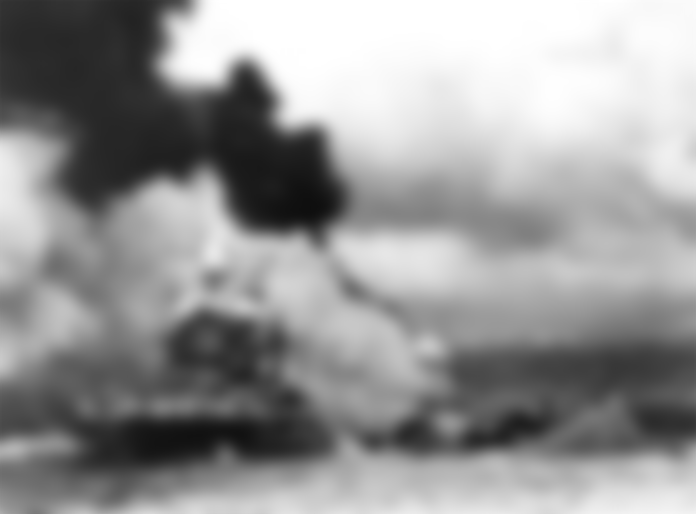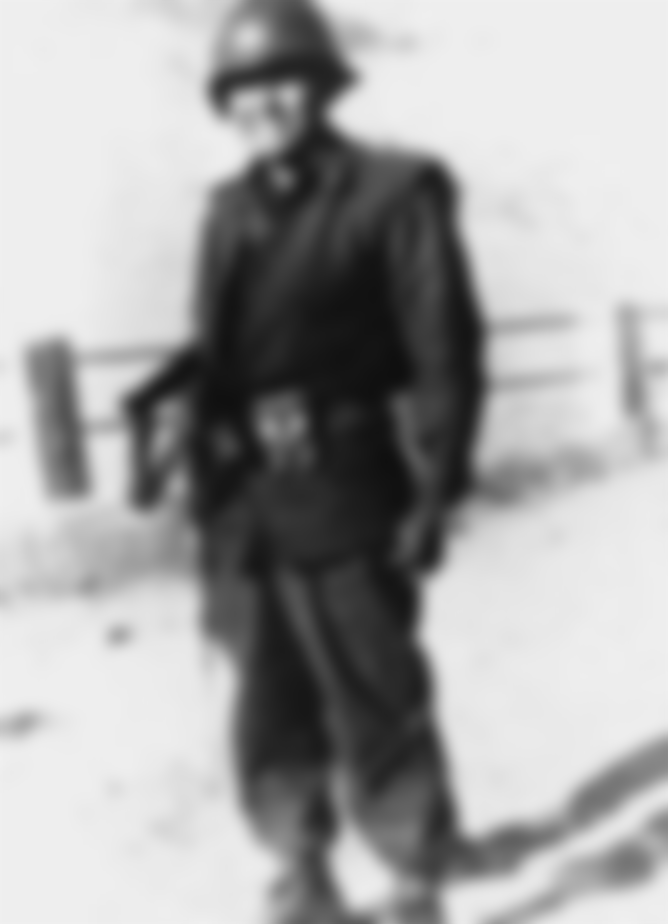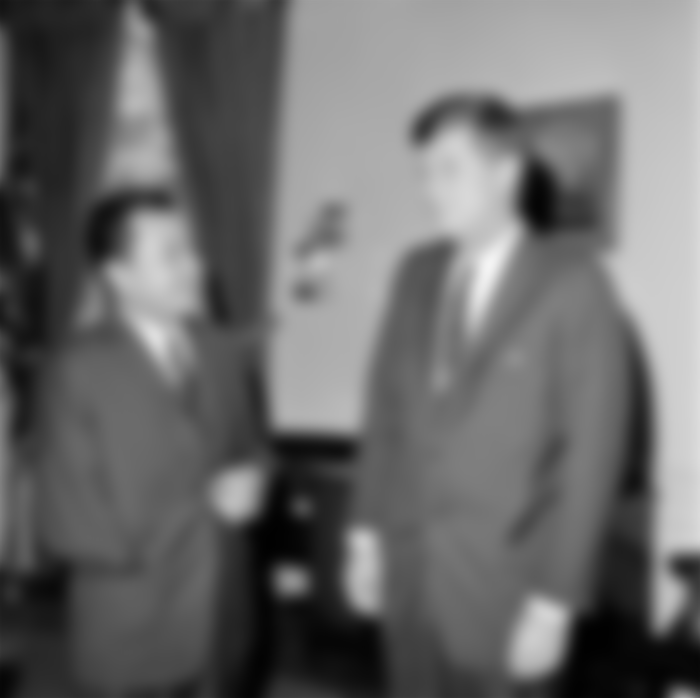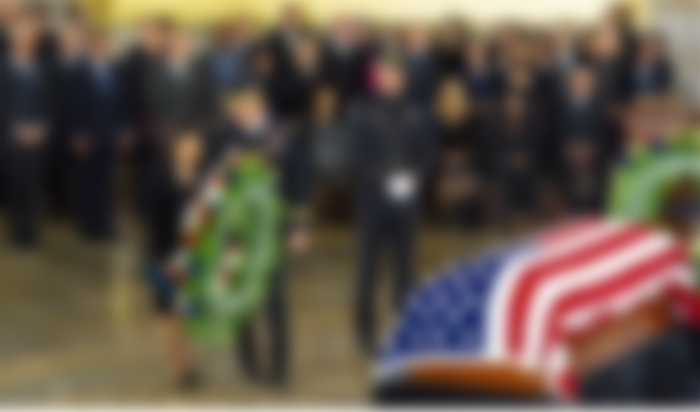Not even a severed arm could stop him from taking down Nazis
I guess you’ve never heard of American lawyer and politician Daniel Inouye, better known as a U.S. senator, but his political career is irrelevant to the story I want to tell you today. His unusual endeavor is almost unknown, but it brought him the Medal of Honor as the highest American military award, and it is worth remembering, and testifies to the incredible endurance of this insanely brave man.

Daniel Ken Inouye was born on September 7, 1924 in Honolulu, then Hawaii. Inouye’s parents were the children of Japanese immigrants. His father, Hyotaro Inouye, was the son of a worker, while his mother, Kame Imanaga, was an orphan adopted by the family of a Methodist priest. From an early age, Inouye's parents instilled in him the importance of helping others. In high school, Inouye volunteered for the Red Cross and decided he wanted to become a surgeon.

On Sunday, December 7, 1941, the Japanese Imperial Navy bombed the U.S. Naval and Air Base at Pearl Harbor. In an interview for oral history with the National Museum of World War II, Inouye recalled his experience of that fateful day. He was getting ready for church, as he did every Sunday, and he happened to be listening to the radio as he put on his shirt and tie. When the radio announcer began to frantically repeat that Pearl Harbor had been attacked by the Japanese, Inouye and his father came out in front of their house. “We looked towards Pearl Harbor and poof! All the smoke. And you could see clouds of anti-aircraft grenades exploding. And then, all of a sudden, three planes flew right over us. Green with a red dot in the lap. I knew my life had changed. ” Inouye, a 17-year-old high school senior, rushed to the Red Cross auxiliary station to help civilians and sailors wounded in the attack.
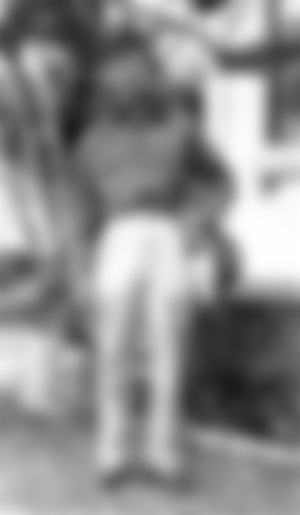
When Inouye graduated from high school in 1942, he immediately tried to enlist in the U.S. Army. The U.S. government, however, denied all Americans of Japanese descent the right to serve in the armed forces. "Even though I was a United States citizen," Inouye explained, "I was declared an enemy alien and as a result I was unable to wear a United States uniform."

In the continental United States, the federal government has imprisoned 112,000 men, women, and children of Japanese descent since March 1942. More than 70,000 inmates were U.S. citizens. No charges were filed against them, and they could not appeal the imprisonment. The U.S. government has not imprisoned millions of U.S. citizens born in Italy or Germany, even though the United States was also at war with those nations.

Although Inouye knew that thousands of Japanese Americans were illegally imprisoned and deprived of property, he and other men of Japanese descent petitioned the U.S. government to allow them to serve in the armed forces. As a result, the government changed its policy and announced the formation of several separate Japanese-American battalions. After hearing the news, Inouye immediately dropped out of medical school at the University of Hawaii and enlisted in the U.S. Army. He was assigned to Company E in the 2nd Battalion of the 442nd Regiment Combat Team, a regiment composed exclusively of Japanese-American soldiers but commanded almost entirely by Caucasian officers.
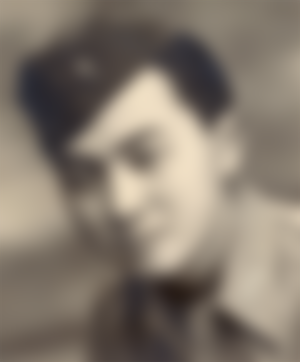
Inouye did well in basic training and was promoted to sergeant within a year. Because the U.S. military did not trust U.S. soldiers of Japanese descent in the fight against Japanese soldiers, the U.S. military deployed those troops exclusively to Europe. Inouye’s regiment fought in Italian theater beginning in the summer of 1944, and Inouye was named a sniper in recognition of his rifle handling skills.
His unit then took part in the fighting in France where it successfully rescued the First Battalion of the 141st Infantry Regiment of the 36th Infantry Division, which was surrounded by German forces. 442. suffered devastating casualties in the attack. Some companies in the Inouy Regiment had less than a dozen men when the engagement ended. Inouye's company was one of the happiest. He started the battle with approximately 150 men, and had 42 men capable of duty after the battle. Sam Inouye for the palmku escaped death in France when a bullet hit him in the chest, but was stopped by the lucky silver dollars he always carried in his chest pocket. In recognition of Inouye’s bravery and leadership during the battle, he was given a rare duty on the battlefield that made him a lieutenant.
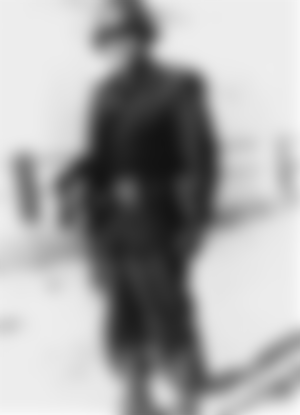
In early 1945, Inouye and the 442nd Regiment returned to Italy. On the morning of April 21, 1945, Inouye realized he had lost his lucky silver dollars. On the same day, he led his platoon in an attack on a reef held by the Germans near the village of San Terenzo. Three German machine guns opened fire on Inouye and his men as they attacked. The bullet pierced Inouye's torso, but he continued to advance, shouting encouragingly his platoon and throwing grenades. He crawled five meters from the enemy position and threw two more grenades, killing the enemy machine guns. He then killed the crew of another machine gun with his machine gun.
Inouye continued to pull the needle on the second grenade and prepared to throw it on the third machine gun nest. He recounted what happened next: “As I pulled my hand back, all in a flash of light and darkness, I saw him, that impersonal German, like a strip of film running through a projector that has gone mad. One moment he was standing up to his waist in the bunker, and the next he aimed a grenade from a rifle at my face from a distance of 10 meters. And even as I bent my arm to throw, he fired and his grenade hit my right elbow and exploded. I looked at my hanging hand and saw my grenade still clenched in a fist that suddenly no longer belonged to me. ” Inouye shouted to his men to restrain themselves, pulled a live grenade from his damaged arm and threw it at the enemy soldier.
Despite Inouye’s severe injuries, he continued to advance and shoot from an automatic rifle from an uninjured left hand. Moments later, a bullet hit Inouye's leg and he lost consciousness. When Inouye regained consciousness, he refused to be evacuated until he was sure his platoon had secured its target. He continued to direct his men as they deployed to the defensive position in the event of an enemy counterattack. Inouye and his men in a successful attack killed a total of 25 enemy soldiers and captured eight others. Nine hours after being wounded, Inouye finally arrived at a Polish hospital. Doctors doubted he would survive, but Inouye insisted they try surgery. He had already received so much morphine that doctors could not risk giving him further anesthetics, and he therefore underwent surgery without sedation. He received a total of 17 blood transfusions.
Over the next two weeks, Inouye underwent a series of surgeries, including one for his right arm amputation on May 1st. His life was spared, but his hopes of becoming a surgeon were dashed. He was awarded the Cross of Merit for bravery, and spent the next two years in military hospitals recovering. Like thousands of wounded veterans, Inouye had to re-learn to do even the simplest of tasks, such as lighting a match with one hand. He was honorably discharged from the U.S. Army in 1947 as a captain.

When Inouye returned home to Honolulu, he enrolled at the University of Hawaii under the provisions of the GI Act and earned a degree in government and economics. He married Margaret Shinobu Awamura in 1949 and graduated in law from George Washington Law School in 1952. Inouye became active in Hawaiian politics, and when the territory gained statehood in 1959, he was elected to serve as one of Hawaii’s first delegates to the United States. . House of Representatives. He won the U.S. Senate election in 1962 and served a total of 53 years in the House and Senate. Throughout his political career, he never lost an election. He was known for his energetic advocacy of his home country, bipartisanship and commitment to fighting discrimination. Inouye was the first Japanese American to serve in Congress.

1990 Congress and the U.S. military begin investigating cases of World War II soldiers who were awarded the Cross of Merit, but may have been denied the nation’s highest honor for racism. As a result, on June 21, 2000, Inouye and 19 other Japanese-American veterans of the 442nd Regiment were awarded the Medal of Honor by President Bill Clinton.

Daniel Inouye passed away on December 17, 2012 at the age of 88. He was posthumously awarded the Presidential Medal of Freedom for his lifelong public service.

